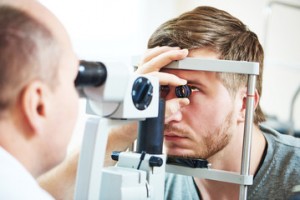Should you Have your Eyes Dilated?
 When you schedule your eye exam, you may think of little more than what time is the best time for your visit. We think about the details of your assessment, such as whether or not we should observe ocular structures while your pupils are dilated. Our recommendation to dilate your eyes for your exam may come as a surprise if you don't know the point. So let's dive in!
When you schedule your eye exam, you may think of little more than what time is the best time for your visit. We think about the details of your assessment, such as whether or not we should observe ocular structures while your pupils are dilated. Our recommendation to dilate your eyes for your exam may come as a surprise if you don't know the point. So let's dive in!
What dilation means
It is through your pupils that light enters the eye. When you are in bright light, such as outdoors, your pupils will contract, or get smaller. This is because they need to shield inner structures from too much light. If you walk into a dark building after being in the sunshine, your pupils will enlarge quite a bit in order to let more light in. If you've ever transitioned quickly from bright sunlight to the indoors, you may remember the momentary sensation of "blindness." This is an example of how the pupils correlate with vision.
Because the size of the pupils relates to light throughout the eye, there may be good reason to force dilation for a comprehensive exam. When the pupils are opened wide, we are able to direct light to structures throughout the eyes, including the very important areas at the back of the eye. Having your eyes dilated is not intensely uncomfortable. At most, you may feel a slight sting from the eye drops, and your vision will be blurry for a few hours. This is a small price to pay for early detection of common but serious eye conditions.
Diabetic retinopathy
Individuals with diabetes are at particular risk for eye disease known as diabetic retinopathy. The amount of sugar floating through the blood on a routine basis directly affects circulation through the tiny vessels in the eyes. It also affects the proliferation of vessel renewal. When these blood vessels become impeded, swelling and leakage may occur.
Age-related macular degeneration
The macula is the central part of the retina. It is the area that enables us to observe objects in front of us. The macula is not a singular object, rather a layer of numerous cells, which continually regenerate. This regeneration may be altered as we age, and under certain conditions, such as smoking. Observing this part of the eye, we look for pigment that alerts us to abnormality in the renewal of this cellular layer.
Glaucoma
In order for you see, light is reflected off the retina and converted to nerve impulses. These impulses travel through the optic nerve to the brain, which translates light into objects. Glaucoma affects the fibers of the optic nerve, impeding the translation of light, ultimately affecting the clarity of vision.
Do you have questions about your eye health? We're here for you. Call Pasadena Eye Associates at (713) 473-5715.
Category:





